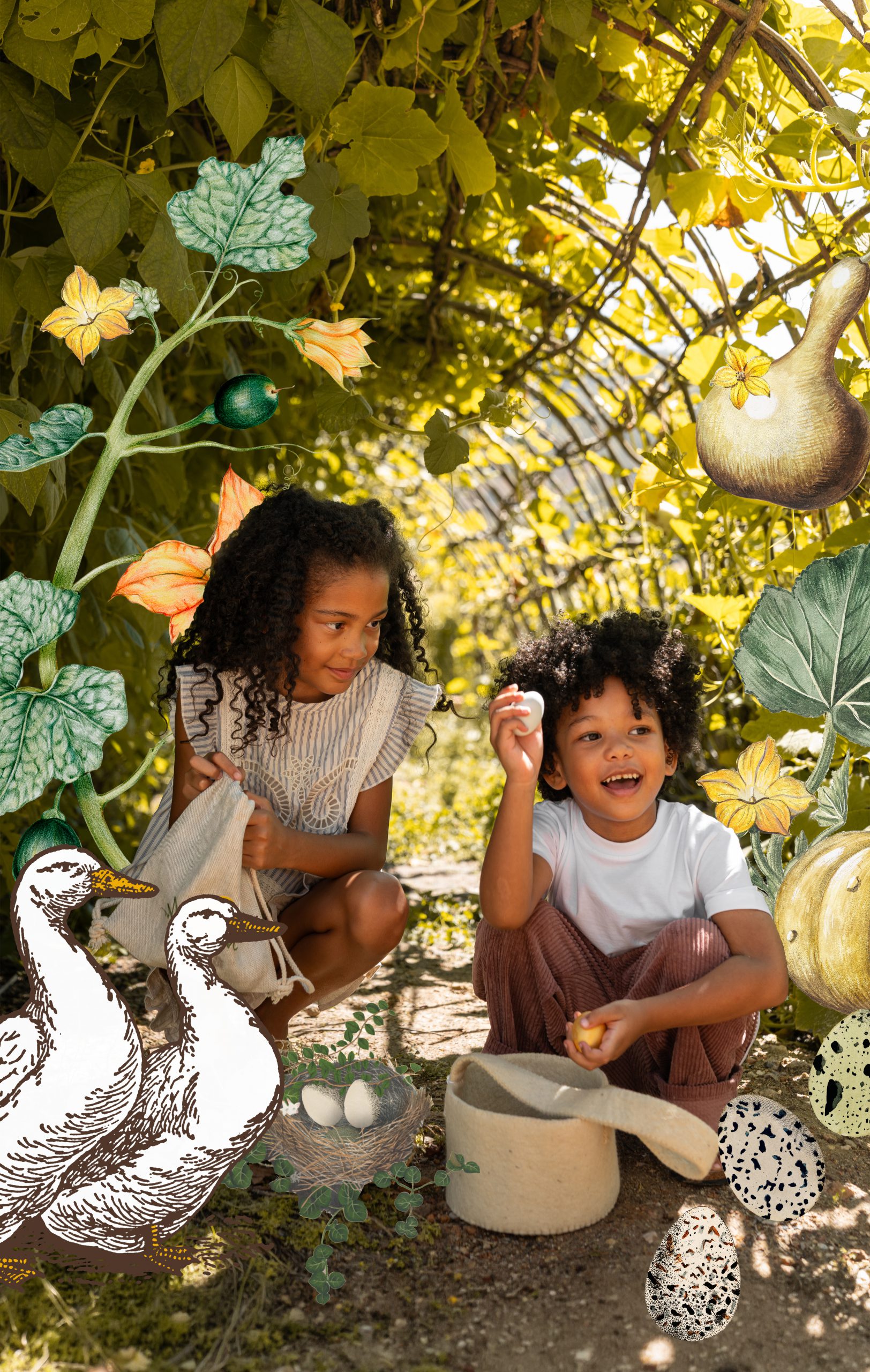Blood Oranges: We’re seeing ruby red!
August 25th, 2022It’s the fruit of the winter gods. When the garden seems stalled in its seasonal slumber and most of the orchards stand bare against the dramatic Winelands peaks, our blood orange branches are hanging thick with fruit.
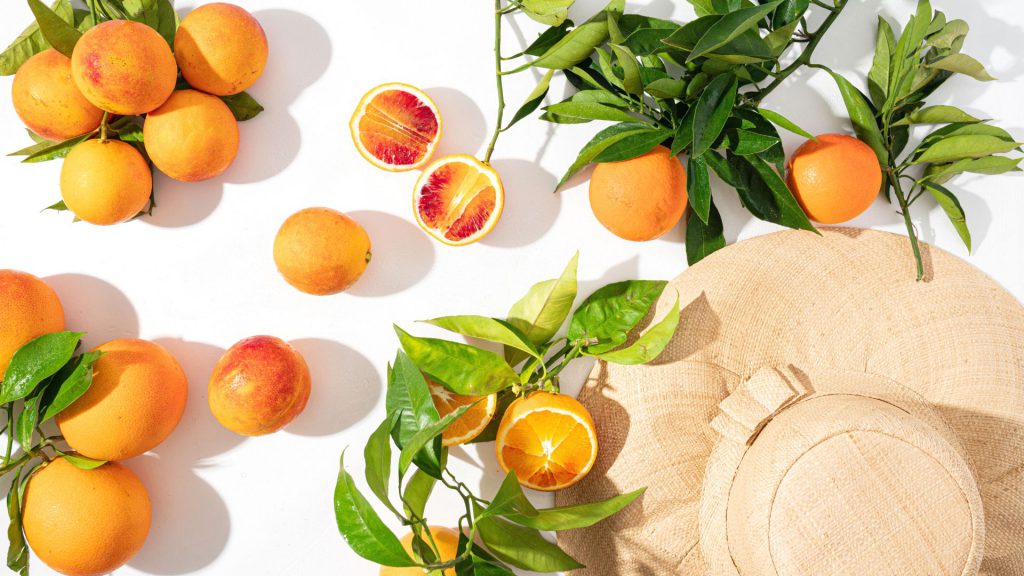
We start picking these jewels during the last wails of winter after most of the other citrus on the farm has been harvested. Farmer Ian and his team leave them out in the winter cold intentionally, as most blood oranges develop their familiar reddish characteristics in icy low night-time temperatures. This means that every year from August and into early spring, we have these unique citrus superstars at our disposal.
What is a blood orange, really?
What makes them different from their classic “blond” cousins and what’s the obsession with their dappled sunrise centres? Let’s peel back the layers … Pigmented or “blood” oranges were initially thought to have originated in the Mediterranean area, probably in Malta or Sicily, but it has recently been suggested that they, like navel oranges, are indigenous to China.
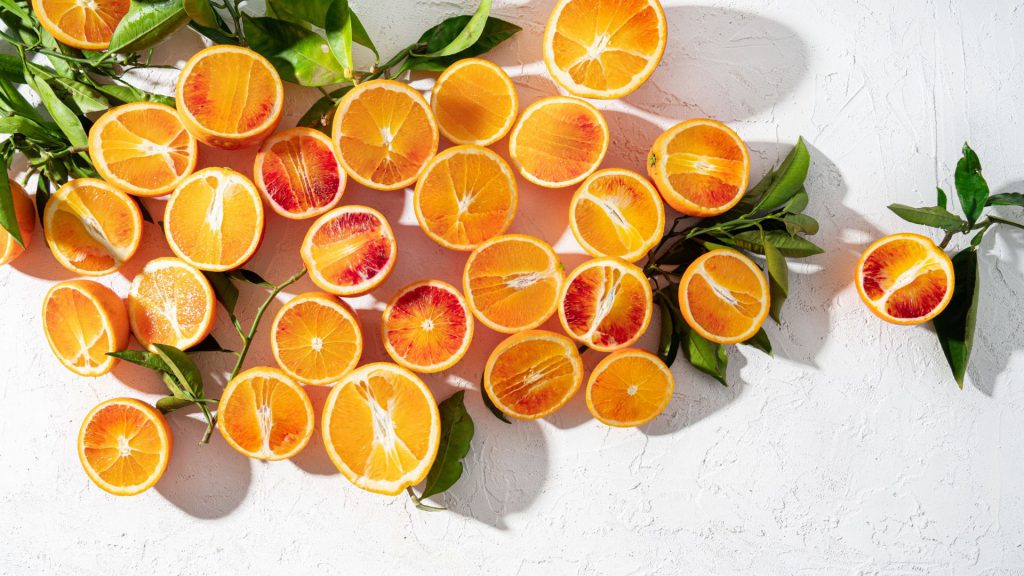
It’s the presence of anthocyanin, a powerful antioxidant, in the flesh and juice and sometimes in the rind, that gives blood oranges their distinct red pigments. The more anthocyanins present, the more the unique colouration will be expressed in the fruit. This, however, varies greatly, even within the same harvest, and a single tree may have fruits of different pigmentation growing on it in a particular season.
When it comes to taste, true blood oranges have a distinctive flavour thanks to these same anthocyanins. It’s no surprise then that a hint of raspberry or cherry is detectable in a blood orange. In most (but not all) varieties the flavour notes seem to be most pronounced in the fruit with the strongest flesh pigmentation.

At Babylonstoren, we started our blood orange journey with a mere 3 hectares planted in 2016. At first, we planted a whole host of cultivars to test them. We have since narrowed down our selection to mainly two cultivars, Tarocco and Moro, both of Italian origin. We’ve expanded our orchard to 10 hectares and plan on planting a further 5 hectares this year.
The sweetest blood oranges, Tarocco
All the fruits from this variety and its subgroups are renowned for their fine flavour. They’re considered to be the star of Sicily and deliciously sweet. We grow three variants, all belonging to the Tarocco family.
Early Ippolito
These tasty blood oranges are the first to ripen for picking on our farm. Ippolito is a subvariety of the popular Tarocco and is renowned for its thorny branches. Our brave picking squad go in well prepared for the harvest, gloves and all.
Red-rind Rosso
This strain of blood oranges often has orange-yellow inners with a faded red blush on mature fruit. Rich and fragrant with an ideal balance between sweetness and acidity, it’s considered among the best of Mediterranean blood oranges. And it is virtually seedless to boot!
Tapi 2
Another member of the Tarocco family, Tapi often has a deep orange exterior with an inside that ranges from deep orange to red. The seedless flesh is very juicy and delicious.
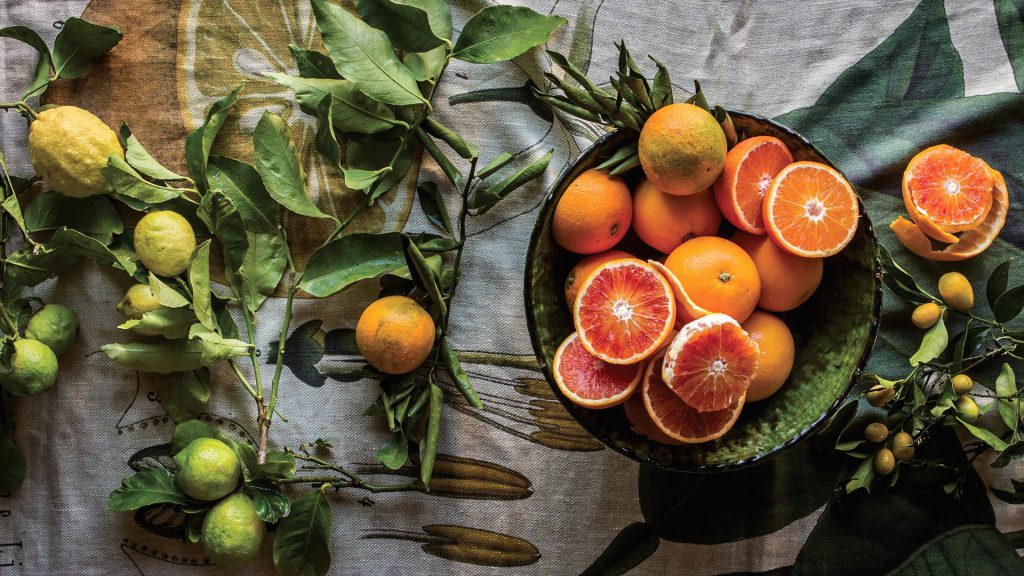
The darkest red blood oranges, Moro
Like most blood oranges, the internal colour of Moro blood oranges depends greatly on seasonal climatic factors. However, no variety has the complete range from blond or common oranges to burgundy-coloured flesh quite like the Moro. It’s renowned for its slight blushed cheeks and fuller skin, which peels more easily than any of the other cultivars. Moro also has a very distinctive taste, largely due to the abundance of anthocyanins. These small blood orange orbs are of relatively recent origin, bred from the Sanguinello Moscato variety.
How to eat blood oranges
We’re proud to be one of only a handful of growers of this interesting orange and offer it abundantly on the farm. If you visit us during August, swing by the Farm Shop stand and grab one to enjoy on your walk through the garden.
Our blood oranges are available for sale on the farm and online during the harvesting season. In the juicery on the farm, our juice man Ernst Kleynhans and his team also incorporate the blood oranges into seasonal juices. These are made with fruits and veggies from the farm that are extracted via high-pressure processing to preserve all nutrients.
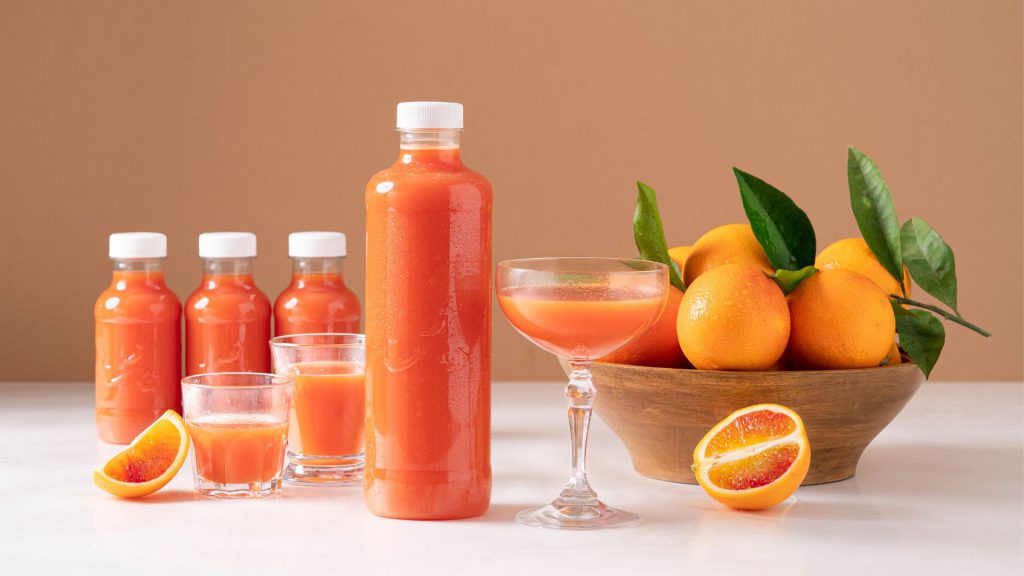
We’ve also used blood oranges as inspiration to create our very own kicky aperitif, bitterlekker. This non-alcoholic tonic is a sophisticated drink with a slightly bitter taste. Expect a bittersweet symphony of herbal notes and zesty citrus, including blood orange, grapefruit, and the lingering bitterness of orange peel. Babylonstoren’s own honeybush tea is also infused into the mix, giving bitterlekker a lovely, dry finish. The complex taste was perfected after testing no fewer than 27 recipes – the final product contains 17 ingredients, of which one is a well-guarded secret.
